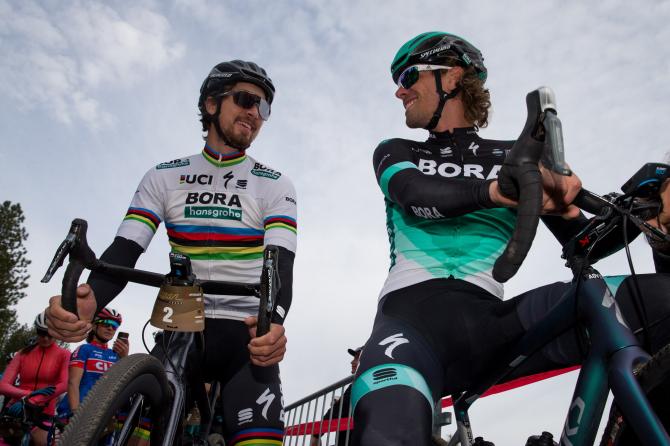The 5 best domestiques of 2018
Let's hear it for the often-unsung heroes
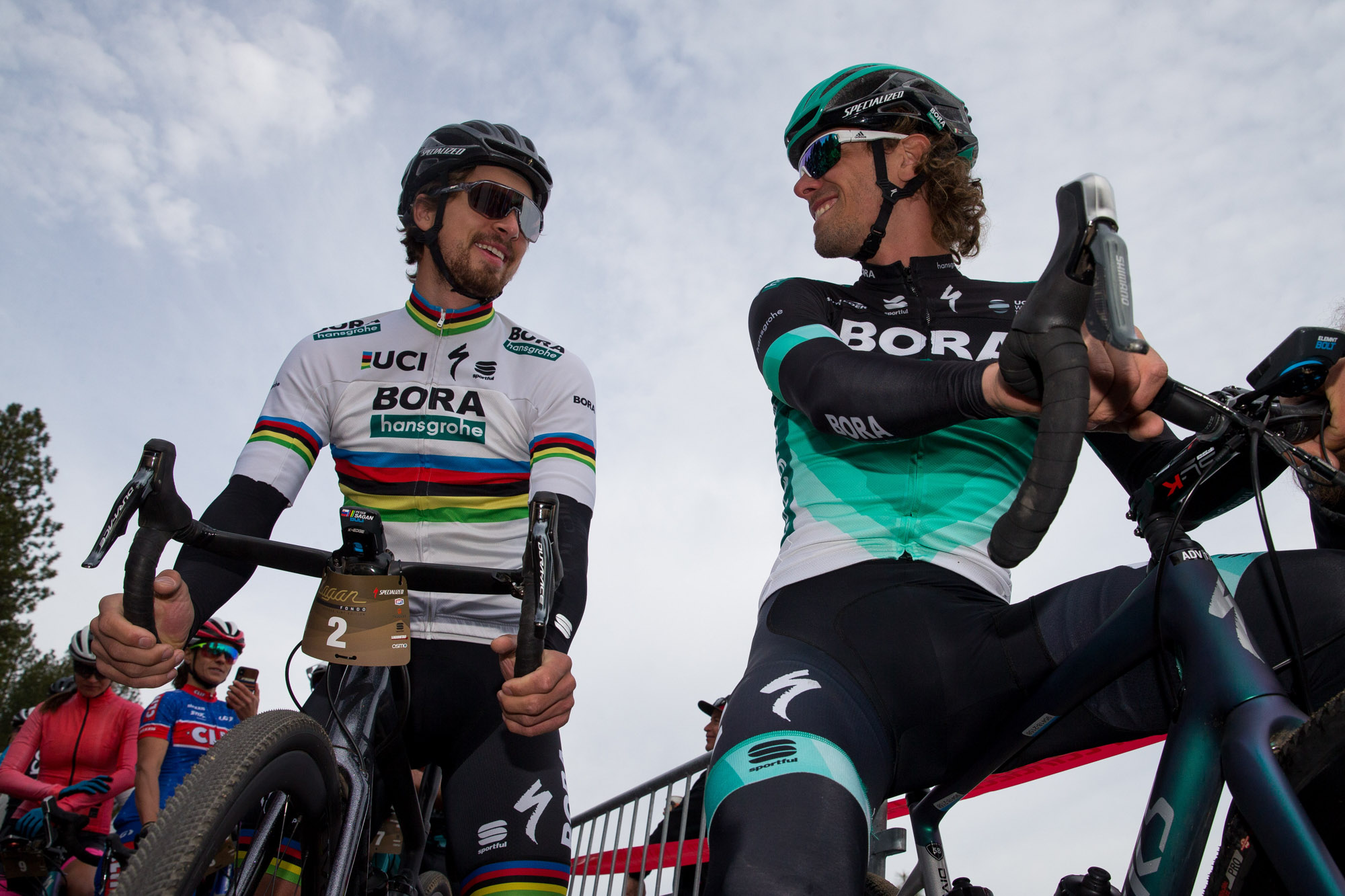
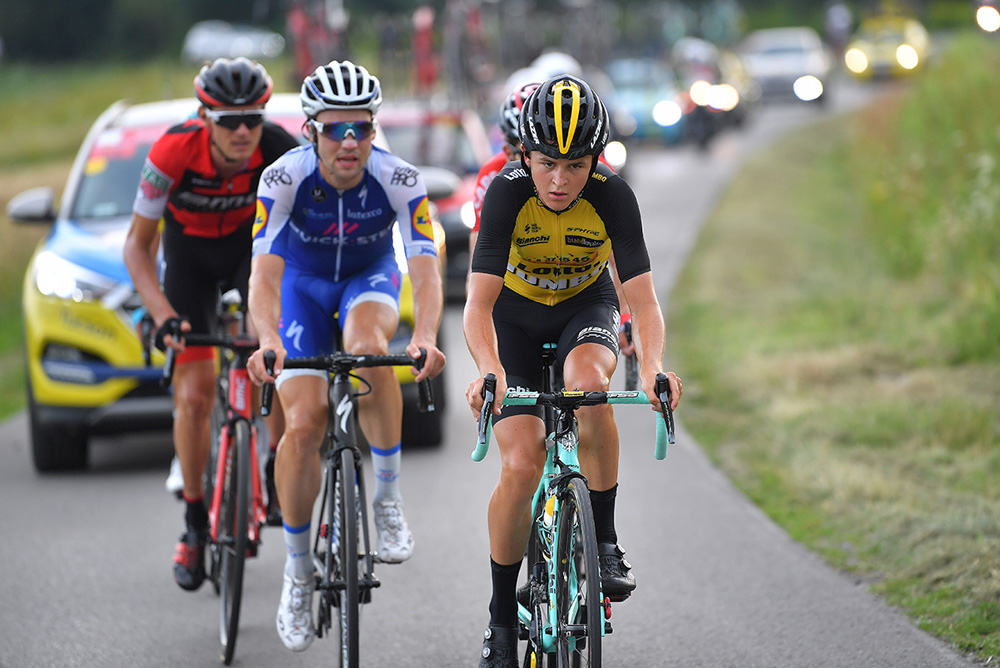
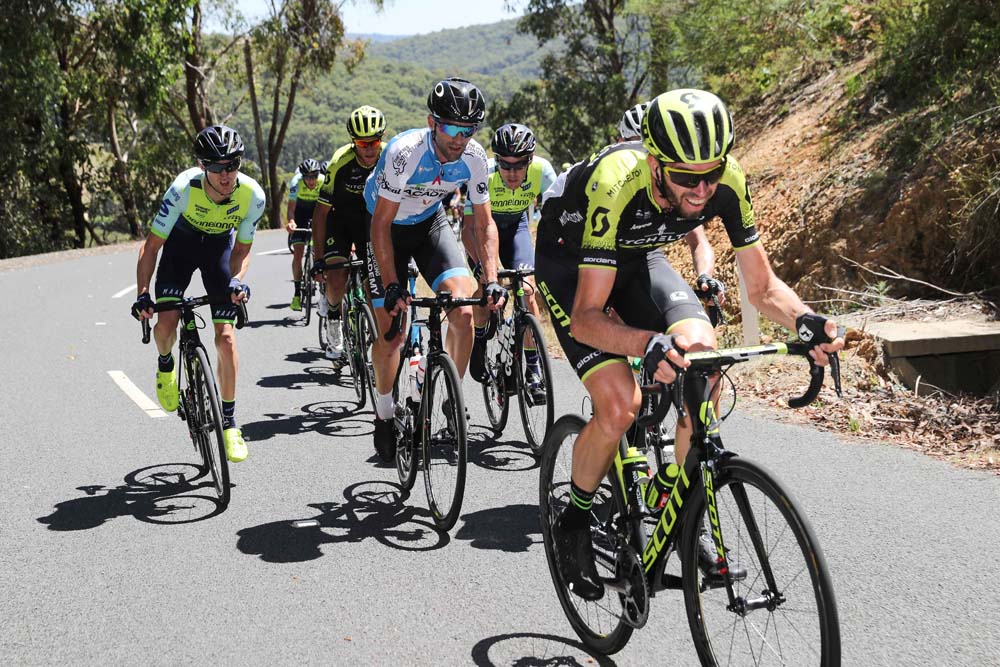
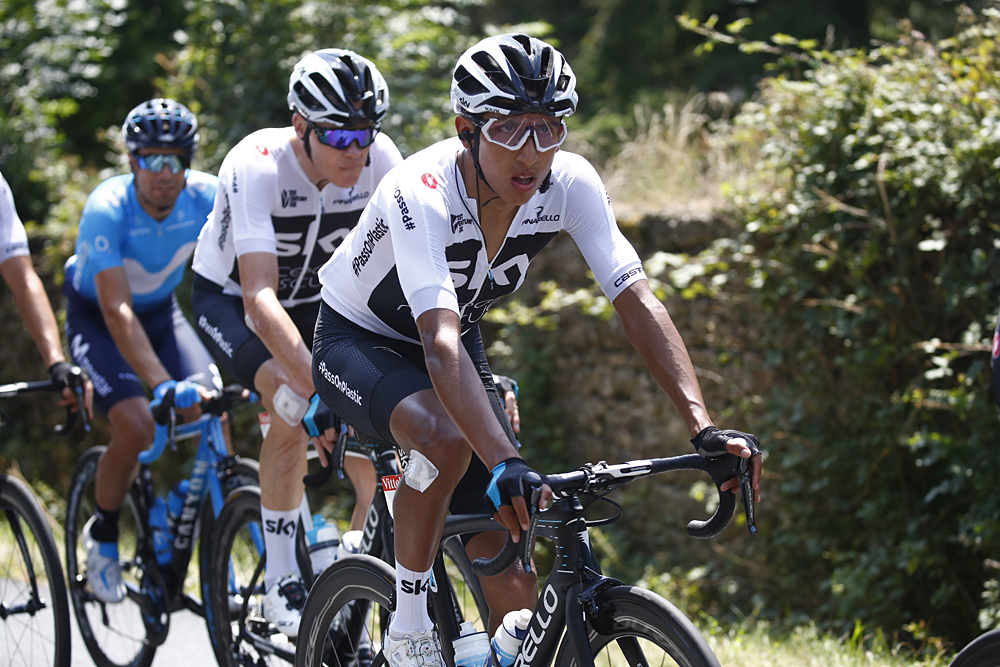
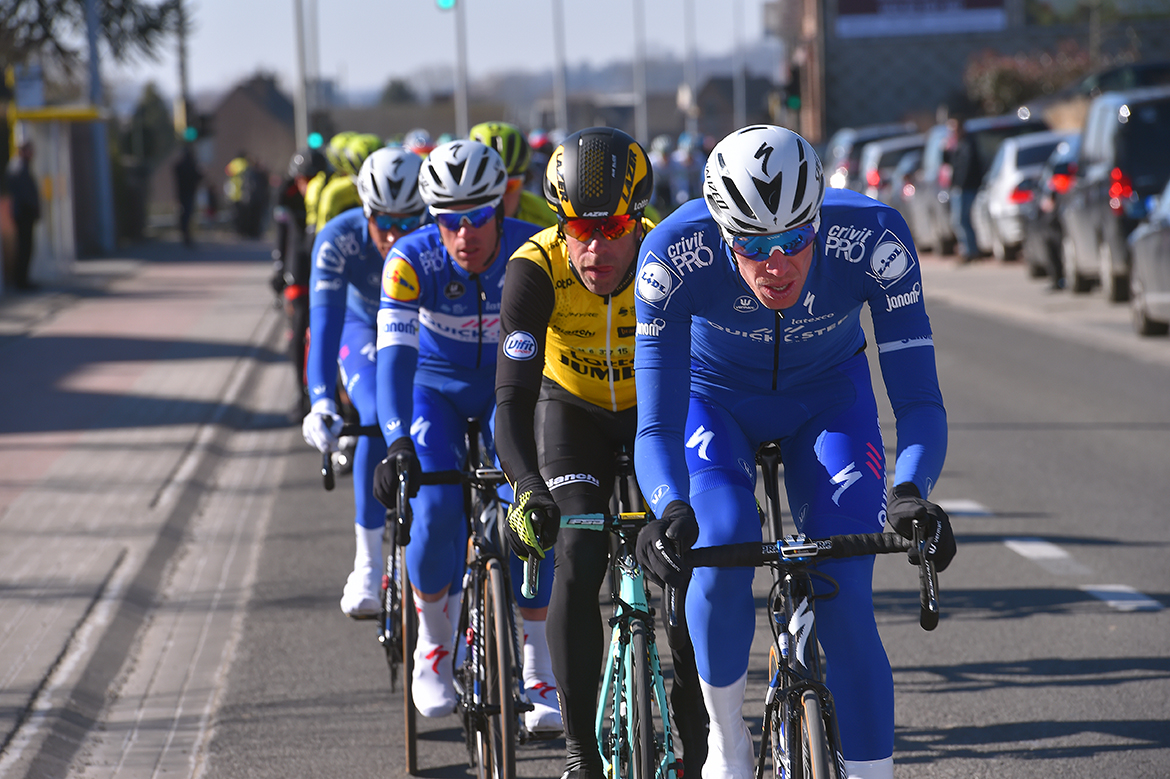
Arguably more than ever these days, domestiques win races. Not themselves – or rarely anyway – but through a collective effort to get their designated leaders to the finish in first place, or in a position to defend their overall positions.
In modern times, and increasingly so in mountain stages, domestiques are expected to be able to stay at the head of affairs for as long as possible, effectively functioning as an 'uphill sprint train' – witness Team Sky – leaving their leaders to wait until the last possible moment to take the race on in anger. It is very much like catapulting a sprinter to the win on a flat stage. Which is also another domestique's job.
There are many facets to the role of domestique: from riding tempo at the front of the bunch, protecting their leader from the wind, to collecting water bottles or shepherding a team leader through a difficult patch or stage, or even handing their bike or a wheel to one of those leaders after a crash or puncture.
Quantifying and classifying such various and often specialist work is sometimes difficult, because what happens in the pro peloton takes place away from prying eyes. But from what TV coverage does show us, and from on-the-ground reporting and stories and praise from team leaders, we present Cyclingnews' five best domestiques of 2018.
Antwan Tolhoek (LottoNL-Jumbo)
For any of our readers who watched the Tour de France in 2018, you would have been hard-pressed not to have noticed a very slight, baby-faced rider dressed in black and yellow at the head of the peloton.
At 1.78m and 61kg, according to the LottoNL-Jumbo website, Antwan Tolhoek regularly rode on the front of the race to help keep a number of breakaways at bay during this year's Tour, and he and the team were rewarded with fourth place and fifth place overall for Primoz Roglic and Steven Kruijswijk, respectively, in Paris.
Tolhoek joined the team from Roompot-Oranje Peloton at the start of 2017, having impressed the Dutch team by taking the mountains jersey at the 2016 Tour de Suisse. A former speed-skater, the 24-year-old's selfless riding has gone a considerable way to redeeming the Dutchman's awkward end to his first season with LottoNL-Jumbo when he was sent home early from a training camp last December for using sleep medication that was unauthorised by the team.
The latest race content, interviews, features, reviews and expert buying guides, direct to your inbox!
"As a team, we're evolving, and I am too," Tolhoek said after signing a two-year contract extension in July with the team that will be known as Team Jumbo from next season. "I'm perfectly happy here, and I'm showing that on the bike. I like the the staff and my teammates. That's important, too."
Tolhoek is a perfect candidate to add mountains classification leaders' jerseys to his locker, in week-long stage races and perhaps even Grand Tours, and to potentially graduate to team-leader status in the future once his apprenticeship as a domestique comes to an end.
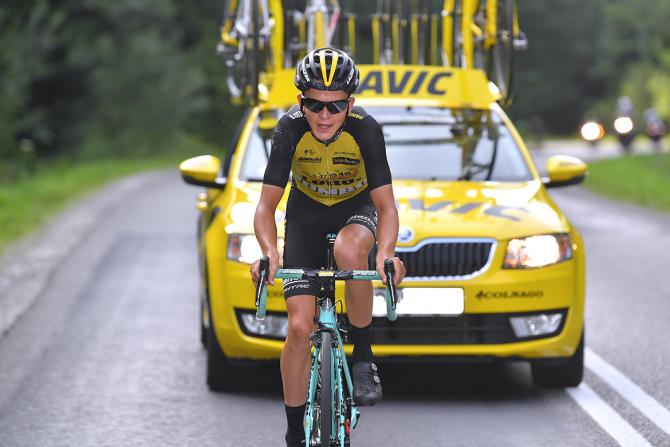
Damien Howson (Mitchelton-Scott)
Damien Howson's been here on this list before, and now, another year older and wiser, the 26-year-old Australian has become an integral part of the super-domestique furniture at Mitchelton-Scott.
Heading into his seventh season with the Australian WorldTour team in 2019, having recently signed a new two-year contract, the 2018 season was a major milestone for the silver-haired cyclist. He was part of a race-winning Grand Tour squad at the Vuelta a España in September, when the team won its first three-week race thanks to Simon Yates. Thanks to Howson, and Jack Haig, and Alex Edmondson, and so on; Mitchelton-Scott view wins as collective triumphs for the team and their domestiques rather than individual achievements.
Not that Howson is unaccustomed to going for the win himself. He won a stage and the overall title at the 2017 Herald Sun Tour and finished fourth overall at this season's Colorado Classic, having put in a fine performance against the clock on stage 2.
With six Grand Tours under his belt, Howson has become an invaluable member of the team for three-week races, with management keen for him to gain even more experience as Mitchelton-Scott continues to transform into a team capable of going for overall victory at the Giro d'Italia, the Tour de France and the Vuelta.
As head sports director Matt White said after Howson's recent contract extension: "The key for him is to continue to get experience in riding at the highest level, including Grand Tours. We are a team that is evolving and to have him with us on this journey is exciting for both parties.
"He didn't get to finish the Tour de France this year because of an injury," White continued, referring to the fractured wrist Howson sustained in a crash on stage 15, "so his appearance at the Vuelta was another good opportunity for him to do a three-week race and get more comfortable with his role. Being part of a winning Grand Tour team is something very special, and I'm sure he learned a lot from the experience."
Clearly comfortable in his role, and having committed his future to the team, expect to see a lot more of the same from Howson in 2019, and beyond.
"I'm learning a lot from what I'm capable of doing, and also what the team expects in the direction the team has been heading," he said.
"We're all aiming to achieve our best and grow, so over the next two years I'm hoping to be part of the many more successes I'm expecting the team to have."
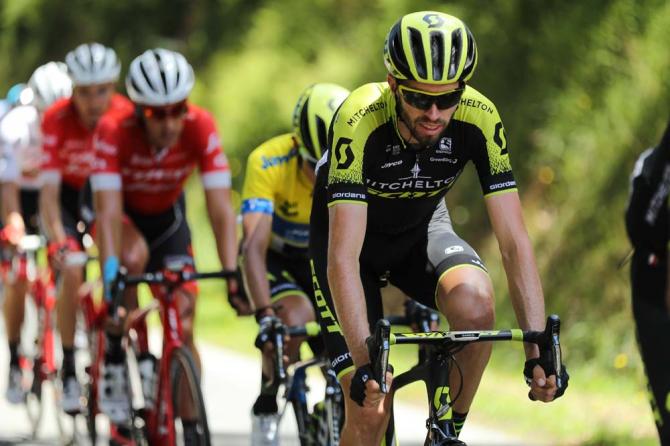
Egan Bernal (Team Sky)
Colombia's Egan Bernal is an interesting entry into this list because the 21-year-old is arguably the 'winningest' domestique – or at least the most likely to win – in the current pro peloton.
Imagine riding only your second stage race for a WorldTour team and winning, which is what Bernal managed to do at the Colombia Oro y Paz in February, having already won the youth classification at the Tour Down Under in January.
In between those two early-season races, Bernal also won the Colombian time trial championship. It's a wonder he was ever prepared to ride as a domestique in his first year at Team Sky at all. Indeed, his continued phenomenal season included an individual time trial stage win and second overall at the Tour de Romandie in April, and then two stage wins and the overall title at the Tour of California in May.
Does such a rider even deserve to be here on a list of domestiques? He's certainly already reached the level of super-domestique, and Team Sky's subsequent gamble to field him in their eight-man Tour de France team certainly paid off.
While touted as a future Tour winner himself, Bernal worked selflessly for team leader Chris Froome and eventual winner Geraint Thomas.
Bernal was there at some of the race's key moments, keeping the tempo infernal at the front of the race on Alpe d'Huez on stage 12 – won by Thomas – and on stage 19 to Laruns, when Bernal helped to ensure Froome stayed in contention for a podium place in Paris when the defending Tour champion was briefly distanced from the leaders on the Col d'Aubisque.
A serious crash at the Clasica San Sebastian the week after the Tour, in which he suffered a fractured nose, facial injuries and a bleed on the brain, might have ended the season for a lesser rider but Bernal fought back to see out his season at the Italian one-day races in October. He finished the year almost as strongly as he'd begun it with 12th place at Il Lombardia as part of a small group that also contained new world road race champion Alejandro Valverde (Movistar) and Worlds bronze medallist Mike Woods (EF Education First-Drapac).
Bernal was heartily rewarded by being presented with an almost unheard of five-year contract extension by Team Sky in October.
"This is an important moment in the development of the team," team manager Dave Brailsford said. "A five-year deal in cycling is exceptional, but Egan is an exceptional talent. It's the clearest signal of our belief in Egan as a rider, with the potential to win the biggest races in the world in the coming years. Age is no barrier to ability."
Bernal was nothing but humble in response to the deal and his first season at Team Sky: "I imagined my first year with the team would be different, and I was nervous before I joined. But I found great people, a team that was ready to help me, and I enjoyed a good season. It was made easy for me.
"My ambition is to keep developing as a rider – to learn from and help the best, and become a key member of the team for many years to come," he said.
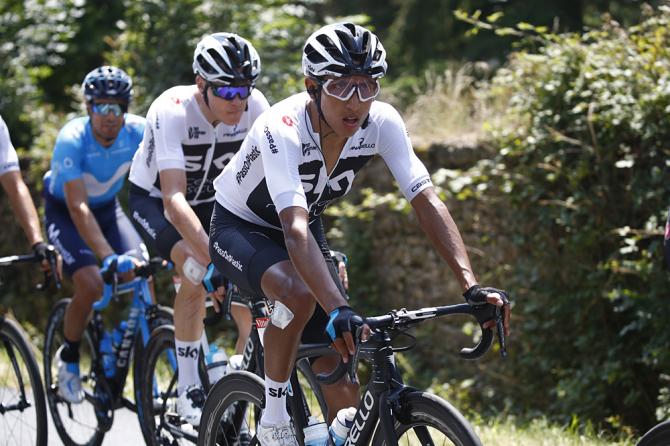
Tim Declercq (Quick-Step Floors)
The Belgian media recently legitimately wondered how many of Quick-Step Floors' 73 victories in 2018 Tim Declercq had been a part of. Cyclingnews has done the maths, and can reveal it to be 16, which is a massive percentage of the Belgian WorldTour team's total.
Being part of a squad that collectively took even 16 wins during a whole season would be the stuff of dreams for any team member, but to have played an active role in so many victories must be the height of achievement for any self-respecting domestique.
A coincidence? Not at all. The 1.9m, 78kg Declercq is the diesel engine that can go the distance, confirming his ability at Quick-Step Floors for the 2017 season after five seasons at Topsport Vlaanderen.
Declercq was handed the opportunity to ride the Vuelta a España at the end of his first year with the team, starting – and finishing – his first Grand Tour by helping Quick-Step to take six stage wins along the way, with four of then coming from Matteo Trentin in sprint finishes.
While LottoNL-Jumbo's Antwan Tolhoek was seemingly omnipresent on the front of this year's Tour de France bunch in a bid to ensure that teammates Steven Kruijswijk and Primoz Roglic stayed in the top 10 of the overall classification, Declercq's similar job was one of trying to assure stage wins for his Belgian super-team.
Declercq's speciality of driving for long periods of time on the front of the peloton is exactly what helped set up teammate Fernando Gaviria's two stage wins at this year's Tour de France, where the Colombian sprinter took both the opening stage in Fontenay-Le-Comte – and with it the yellow jersey – and stage 4 from La Baule to Sarzeau.
It was Declercq's first Tour, and only his second Grand Tour after that 2017 Vuelta, but the responsibility on his shoulders was considerable. With arguably seven of the eight Quick-Step team members capable of winning stages, Declercq was somewhat of a lone cowboy, pressed into service by whichever of the squad's magnificent seven was most suited to the stage of the day.
And the wins came: first from Gaviria, and then two more from Julian Alaphilippe, on stage 10 to Le Grand Bornand, and again in Bagnères-de-Luchon a week later on stage 16.
An extremely capable rider who is as at home among the wild winds and cobbles of Belgium as the sun-drenched roads of the Grand Tours, Declercq will continue in his vital role with the team in 2019. The name on his jersey will change to Deceuninck-QuickStep, but his commitment to the cause will not.
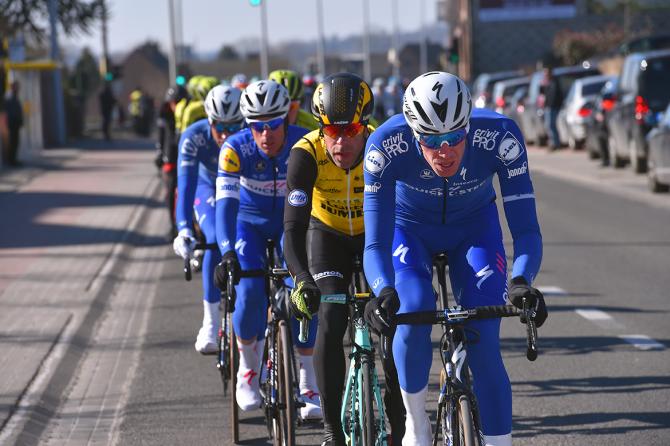
Daniel Oss (Bora-Hansgrohe)
Daniel Oss was brought to Bora-Hansgrohe at the start of the season to continue in the trusted domestique role he had filled at BMC Racing for the previous five seasons.
His winning days may be over, despite still only being a relatively youthful 31, but experience like Oss's is hard to come by.
A veteran of 10 Grand Tours, including five Tours de France, the Italian's only two pro victories have come on a stage of the 2011 USA Pro Challenge, where he beat then Liquigas teammate Elia Viviani, and at the 2010 Giro del Veneto, where he won ahead of none other than Peter Sagan, who was also a Liquigas teammate that year.
And it was Sagan himself who was instrumental in ensuring that he was reunited with Oss at Bora-Hansgrohe this season.
Oss has been part of the squad in every race that the three-time world champion has won this season, bar the Slovakian national road race championships. Sagan took seven wins, all with Oss's assistance, with the Italian being instrumental in his team leader's Paris-Roubaix win in April, having also helped his former BMC team leader Greg Van Avermaet to take victory there the year before. It's perhaps no coincidence that you win the Queen of the Classics when Daniel Oss is on your side.
Oss helped keep Sagan at the front of the race and in contention all day, chasing down Quick-Step Floors' Philippe Gilbert's attack in the Arenberg Forest and then the Belgian's teammate Zdenek Stybar before the Bersée sector of cobbles.
In tandem with Bora-Hansgrohe teammate Marcus Burghardt, Oss played a vital role in keeping the pace high and the favourites together, allowing Sagan to make what would be the race-winning move with 55km to go, with Oss still managing to finish in 40th place after a day of hard work.
"If you're in front, you stay up there, and if you're behind, you stay back there," Oss said after the race, tallying his and Sagan's race with the old bike-racing adage that you make your own luck at a race like Roubaix.
"It was all quite under control. We knew what might happen," Oss said of the attacks from Quick-Step's Gilbert and Stybar. "We were able to stay calm, stay in the wheels, close the gaps when we needed to, and then create the winning situation."
And that's why Sagan wanted Oss as a domestique and teammate at Bora-Hansgrohe.
